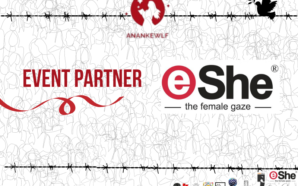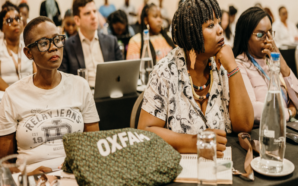By Gwenno Brown
 As a tech recruitment agency that specializes in international recruitment, Global {M} is passionate about placing the most talented in tech with the most innovative companies globally. For Global {M} it is the talent and not the gender of the candidate that makes a perfect fit for a role. Over the last week Global {M} has spoken to a number of tech professionals from coders to co-founders in order to discover the career challenges that #womenintech have faced. As well as exploring some incredible projects that are empowering women and girls to fulfil their potential within the tech sphere.
As a tech recruitment agency that specializes in international recruitment, Global {M} is passionate about placing the most talented in tech with the most innovative companies globally. For Global {M} it is the talent and not the gender of the candidate that makes a perfect fit for a role. Over the last week Global {M} has spoken to a number of tech professionals from coders to co-founders in order to discover the career challenges that #womenintech have faced. As well as exploring some incredible projects that are empowering women and girls to fulfil their potential within the tech sphere.
Marissa Mayer (CEO of Yahoo), Jacqueline de Rojas (President of the techUK Board), and Adriana Gascoigne (Founder and CEO of Girls in Tech) represent a movement of women who are using their talent, tenacity and tact to break down the barriers of sexism and gender based stigmas that have been prevalent in the tech sector since its foundation. Ellen Pao and Sheryl Sandberg are two who have publicly fought to break down these barriers. The potency of Pao’s legal battle and of Sandberg’s exclamations in her book ‘Lean In’ have led to an extraordinary public reaction. It is extraordinary reactions such as this, from both males and females, which empowers the #womenintech movement to continue to work towards gender equality in the tech sector. The word ‘equality’ is intrinsic here; it is equal rights and equal opportunities which are sought; equality regardless of gender.
There isn’t one simple answer to the issue of gender inequality, and it is a global issue which clearly isn’t confined to the tech sector. A powerful reminder of this was the inclusion of a gender equality goal in the UN Millennium Development Goals.
Goal 3: Promote Gender Equality and Empower Women
Fifteen years have passed since these goals were set, during the largest gathering of world leaders in history. 2015 was the deadline for these goals, and although there have been an abundance of outstanding initiatives, it is clear that there is still work to be done. Moreover, it is nearly impossible for Goal 3 to be met without achieving Goal 2.
Goal 2. Achieve Universal Primary Education
Education is key. Education enables freedom of thought and a license to question whether ‘norms’, be they gender norms or otherwise, are correct.
The goals of empowerment and education are also key to the gender inequality issue within the tech sector. At a fantastic Intel Diversity UK event held in London recently Fraedrich of Intel spoke about how some men (a higher percentage than expected) were totally unaware of the challenges that women had faced when trying to integrate into a male dominated sector. It was a point that is very rarely highlighted. Therefore, in order to tackle this issue, is it not key to empower men as well as women; to empower men by informing them of the challenges that women feel they have faced, not in an accusatory manner, but through information, meetings, workshops? This is not, of course, to deny that there is an obvious battle to be fought at more senior levels, where lack of information is not an issue.
The UN’s #heforshe campaign spearheaded by Emma Watson is a campaign which can, and ought to be, applied to all sectors.
#HeForShe is a solidarity movement for gender equality developed by UN Women to engage men and boys as advocates and agents of change for the achievement of gender equality and women’s rights. The campaign encourages them to speak out and take action against inequalities faced by women and girls.”
Gender equality will not be realised until men and women work together.
Over the last few weeks Global {M} has had the privilege to talk with a number of diverse and truly exciting organisations who are working to empower #womenintech. Girls in Tech UK, is only one example: The organisation was founded to support and raise the visibility of women in technology, entrepreneurship and innovation which they do through events, female panels, training courses, mentorship schemes and networking opportunities. Asked about the success of the organisation Phoebe Scriven, a member of the UK board, explains:
And so, you ask, how have we done? Well, our panel events sell out – so we are facilitating networking and female visibility. We have great partnerships – so we are highlighting this need to businesses and getting their support. We run wildly successful coding weekends with hundreds in the waiting list – we are training women in the necessary skills for future adaptation and success.
Yet for me, success is also found in ways that is harder to quantify: when someone arrives alone and nervous yet goes away invigorated from meeting so many others in their position; when we connect two entrepreneurs; when we recognise a woman’s achievements because they are impressive, not because they are female. For individuals, these successes can make all the difference.
 What is even more exciting is the number of organisations, events and festivals focused on teaching children and young people how to code, and empowering them to become the tech wizards of the future. Declan Cassidy of Brighton based Maker Club which holds coding classes, workshops and events for children (amongst other fascinating projects), spoke to us about the buzz surrounding technology and the creative license that technology offers children irrespective of gender. Cassidy also stated that there had been a growth in female participation, with girl only events encouraging girls to engage with technology before confidently attending mixed workshops. Festivals such as Spark, and Festival of Code are also working to make technology accessible for all children and young adults.
What is even more exciting is the number of organisations, events and festivals focused on teaching children and young people how to code, and empowering them to become the tech wizards of the future. Declan Cassidy of Brighton based Maker Club which holds coding classes, workshops and events for children (amongst other fascinating projects), spoke to us about the buzz surrounding technology and the creative license that technology offers children irrespective of gender. Cassidy also stated that there had been a growth in female participation, with girl only events encouraging girls to engage with technology before confidently attending mixed workshops. Festivals such as Spark, and Festival of Code are also working to make technology accessible for all children and young adults.
Talking #WomenInTech, Global {M} spoke to Kate Jackson who is (amongst co-founding numerous other successful start ups!) the Co Founder and CEO of TableCrowd Ltd and the CoFounder & Director of Silkfred.com. Kate offered a different perspective on the #womenintech issue and spoke enthusiastically about how the growth in entrepreneurship and the rapid development of the startup space is making working in tech more accessible. It is becoming clear that virtually every new business is now, in one way or another, a digital business with understanding technology and programming, to some extent, becoming a prerequisite to success. Moreover, being a woman in tech is defined more widely today than ever before. Being a woman in tech no longer only applies to developers and coders but to an array of tech focused roles. This in itself is a positive development which ought to empower women to continue to break down the barriers of gender inequality.
Being a woman in tech no longer only applies to developers and coders but to an array of tech focused roles. This in itself is a positive development which ought to empower women to continue to break down the barriers of gender inequality.
There are very positive developments surrounding the #womenintech movement, but there is still work to be done. It is also important to note that in lesser developed countries, technology is crucial to empowering millions of girls and women. Technology is a universal language of equality irrespective of gender. In countries where women have for generations been seen to be subordinate to men, the language of technology, combined with education and empowerment could be key to diminishing subordination and realising equality.
The key to overcoming the barriers facing #WomenInTech therefore arguably lies with the three Es: engagement, education and empowerment.
For any feedback, or if you would like to discuss collaborating with Global {M} please e-mail Gwenno@global-m.co.uk
This article was previously published here.










